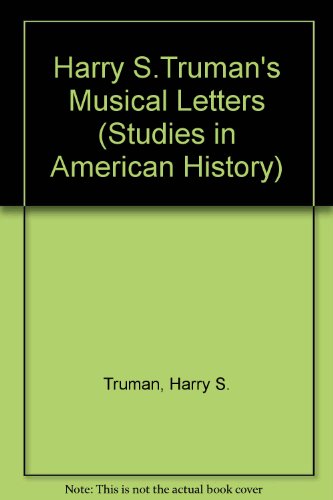Truman Harry Brandt Thompson (1 results)
FeedbackSearch filters
Product Type
- All Product Types
- Books (1)
- Magazines & Periodicals (No further results match this refinement)
- Comics (No further results match this refinement)
- Sheet Music (No further results match this refinement)
- Art, Prints & Posters (No further results match this refinement)
- Photographs (No further results match this refinement)
- Maps (No further results match this refinement)
- Manuscripts & Paper Collectibles (No further results match this refinement)
Condition
- All Conditions
- New (No further results match this refinement)
- Used (1)
Binding
- All Bindings
- Hardcover (1)
- Softcover (No further results match this refinement)
Collectible Attributes
- First Edition (1)
- Signed (No further results match this refinement)
- Dust Jacket (No further results match this refinement)
- Seller-Supplied Images (No further results match this refinement)
- Not Print on Demand (1)
Free Shipping
- Free Shipping to U.S.A. (No further results match this refinement)
Seller Rating
-
Harry S. Truman's Musical Letters; Studies in American History, Volume 30
Published by The Edwin Mellen Press, Ltd, Lewiston, New York, 2000
ISBN 10: 0773476512 ISBN 13: 9780773476516
Seller: Ground Zero Books, Ltd., Silver Spring, MD, U.S.A.
First Edition
Hardcover. Condition: Very good. Presumed First Edition, First printing. [12], v, [1], 127, [7] pages. Includes Illustrations. Foreword, Editorial Note, Preface, Acknowledgments, Epilogue, Notes, References, and Index. Cover has slight wear and soiling. Topics covered include Introduction, Dear Bess, 199-1918; Dear Margaret and Bess, 1932-1945; Presidential Letters, 1945-1950; Dear Mr. Hume (the Washington Post reviewer who criticized the piano playing of President Truman's daughter Margaret), Presidential and Former Presidential Letters, 1953-1972; and Three Musical Images. The Edwin Mellen Press, Ltd. is a non-subsidy academic publisher of books in the humanities and social sciences. Their sole criterion for publication is that a manuscript makes a contribution to scholarship. They publish monographs, critical editions, collections, translations, revisionist studies, constructive essays, bibliographies, dictionaries, reference guides and dissertations. This book presents for the first time over 100 selected letters with reference to music, written to Harry S. Truman's wife Bess, later to his daughter Margaret, and finally to a host of 20th century musicians, historical figures, and other important people, including Bob Hope, Eugene List, Joseph Kennedy, Jose Iturbi, Guy Lombardo, et al. As a single body, they trace the life of Harry Truman from the perspective of music. More intriguing is the tone of several letters from the late 1940s that clearly signals Truman's volatile letter to music critic Paul Hume. The record shows that Truman corresponded with Hume on several occasions after 1950. Finally, Truman's Musical Letters presents a full account of the Hume letter, from the time it was sent with a three-cent stamp on it to its current place in American history. The volume includes a selection of the public's letters to Truman in reaction. The theme of letters to Bess demonstrates that Harry S. Truman was a knowledgeable musician and pianist, and that he enjoyed attending performances of classical music. Margaret received from her father's letters a considerable amount of parental care, inspiration, advice, and prodding. And to others, Harry Truman revealed in his letters a passion for music, rather mature taste and insight, and good will. Music was an essential part of Harry Truman's life from the time he was a young boy. He learned to play the piano at age seven and took lessons from Mrs. E.C. White, a well-respected instructor in Kansas City. Mrs. White once took Harry to see the famous pianist Ignacy Jan Paderewski at the Shubert Theatre in Kansas City. After the concert, Paderewski gave Harry a short lesson backstage, an event that left a lasting impression on young Harry. At age 15 he gave up his piano studies, deciding he must "go to work and earn a living." As a young man, Truman attended many concerts and musicals in Kansas City and often took Bess on dates to the city. In 1912 he wrote to Bess, "How would you like to see the Orpheum road show in the afternoon and then go to dinner somewhere and then go to the Shubert? We could end up the season in one big splash." Throughout his life, Harry Truman played music, listened to music and discussed music with his family and friends. In 1951, President Truman reflected, "I am still very much interested in music and what it does for people. My daughter has some interest in music. My mother was very fond of music, and my father used to sing in the church choir. So I come by my love of music honestly." Truman was not fond of what he called "modern noise," preferring the traditional classical music of his youth. He collected many records over the years and kept them in his study next to his Magnavox phonograph. Speaking of his favorite composers he said, "[Now] we can get them all on records, of course, and I have several of those.great pianists of the past playing those wonderful things of Mendelssohn and Beethoven, Mozart and Bach and Chopin." The Trumans amassed a collection of over 680 records-some purchased by the family, others received as.


